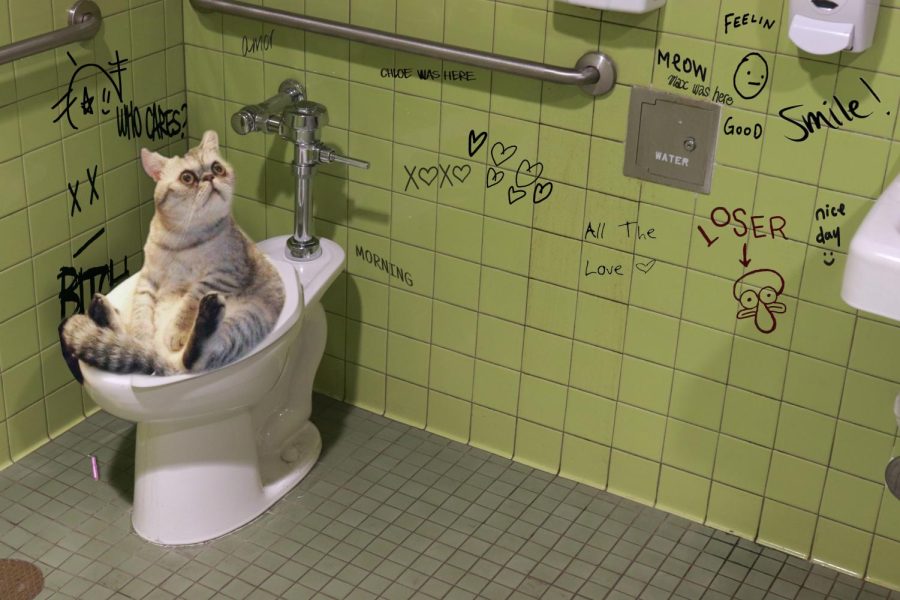Prevent Clogs and Damage: Never Flush Cat Poop Down Your Toilet - Professional Insights
Prevent Clogs and Damage: Never Flush Cat Poop Down Your Toilet - Professional Insights
Blog Article
Everybody seems to have their own way of thinking when it comes to How to Dispose of Cat Poop and Litter Without Plastic Bags.
Intro
As feline proprietors, it's necessary to be mindful of just how we take care of our feline close friends' waste. While it may appear convenient to flush cat poop down the commode, this method can have damaging repercussions for both the environment and human health.
Ecological Impact
Purging cat poop presents damaging virus and parasites into the water system, posturing a substantial risk to water ecological communities. These impurities can adversely impact marine life and compromise water quality.
Health Risks
In addition to ecological problems, purging pet cat waste can additionally present health and wellness dangers to people. Cat feces may have Toxoplasma gondii, a bloodsucker that can trigger toxoplasmosis-- a potentially extreme health problem, especially for pregnant females and individuals with weakened body immune systems.
Alternatives to Flushing
Thankfully, there are safer and a lot more responsible means to throw away cat poop. Take into consideration the following choices:
1. Scoop and Dispose in Trash
The most typical approach of disposing of cat poop is to scoop it right into a naturally degradable bag and toss it in the trash. Make certain to use a specialized litter scoop and get rid of the waste without delay.
2. Use Biodegradable Litter
Go with naturally degradable pet cat litter made from materials such as corn or wheat. These clutters are environmentally friendly and can be safely thrown away in the garbage.
3. Bury in the Yard
If you have a lawn, think about burying cat waste in a marked location far from vegetable gardens and water resources. Make sure to dig deep sufficient to prevent contamination of groundwater.
4. Mount a Pet Waste Disposal System
Purchase a family pet waste disposal system especially created for cat waste. These systems make use of enzymes to break down the waste, minimizing odor and ecological impact.
Final thought
Responsible family pet ownership prolongs past offering food and sanctuary-- it also includes correct waste management. By avoiding purging cat poop down the bathroom and going with alternative disposal techniques, we can lessen our ecological footprint and safeguard human health and wellness.
Why You Should Never Flush Cat Poop Down the Toilet
A rose by any other name might smell as sweet, but not all poop is created equal. Toilets, and our sewage systems, are designed for human excrement, not animal waste. It might seem like it couldn’t hurt to toss cat feces into the loo, but it’s not a good idea to flush cat poop in the toilet.
First and foremost, assuming your cat uses a litter box, any waste is going to have litter on it. And even the smallest amount of litter can wreak havoc on plumbing.
Over time, small amounts build up, filling up your septic system. Most litter sold today is clumping; it is made from a type of clay that hardens when it gets wet. Ever tried to scrape old clumps from the bottom of a litter box? You know just how cement-hard it can get!
Now imagine just a small clump of that stuck in your pipes. A simple de-clogger like Drano isn’t going to cut it. And that means it’s going to cost you big time to fix it.
Parasitic Contamination
Believe it or not, your healthy kitty may be harboring a nasty parasite. Only cats excrete Toxoplasma in their feces. Yet it rarely causes serious health issues in the cats that are infected. Most people will be fine too if infected. Only pregnant women and people with compromised immune systems are at risk. (If you’ve ever heard how women who are expecting are excused from litter cleaning duty, Toxoplasma is why.)
But other animals may have a problem if infected with the parasite. And human water treatment systems aren’t designed to handle it. As a result, the systems don’t remove the parasite before discharging wastewater into local waterways. Fish, shellfish, and other marine life — otters in particular — are susceptible to toxoplasma. If exposed, most will end up with brain damage and many will die.
Depending on the species of fish, they may end up on someone’s fish hook and, ultimately on someone’s dinner plate. If that someone has a chronic illness, they’re at risk.
Skip the Toilet Training
We know there are folks out there who like to toilet train their cats. And we give them props, it takes a lot of work. But thanks to the toxoplasma, it’s not a good idea.

As a serious reader about Can You Flush Cat Poop Down The Toilet?, I think sharing that short article was a good thing. Are you aware of another individual who is fascinated by the topic? Take a moment to share it. Many thanks for your time invested reading it.
Additional Resources Report this page